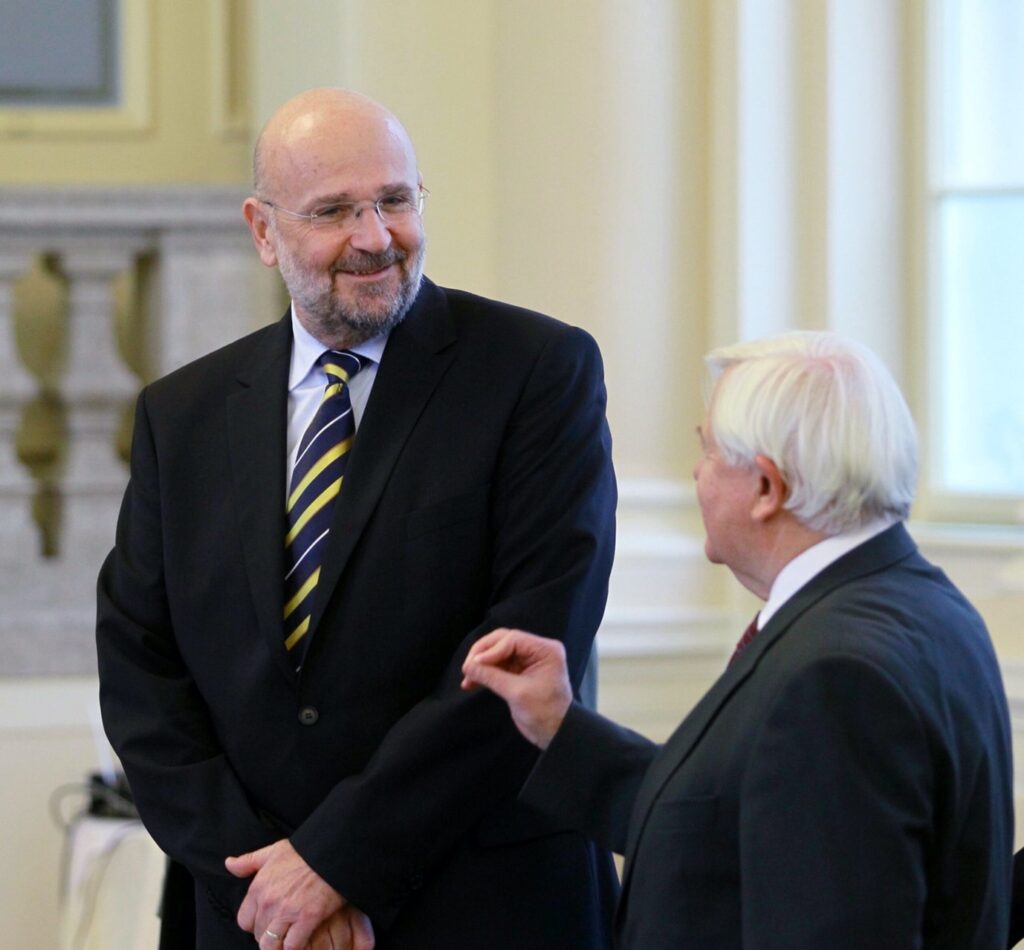Supreme Court judge Branko Masleša’s problems are not limited to him proving the authenticity of his diploma; events from the past are also causing him some trouble. Allegations of him enthusiastically describing how a refugee was shot in the head are coming to light again, and he also signed an unconstitutional conviction of those accused in the Patria political trial.
The book entitled The Legendary Slovenian Intelligence Officers (“Legendarni Slovenski obveščevalci” in Slovenian), which was written by Marijan F. Kranjc and published in 2011 also contains records on the shooting at the border, which happened during the communist era, and records on the military counter-intelligence service – KOS (“Kontraobveščevalna služba”), and among the recipients of the plaque is also Supreme Court judge Branko Masleša.
The case certainly represents a dark stain on Masleša’s reputation, who had a fascination with death while he was still a party judge. As we have already reported, Masleša was already a cruel judge during his service at the Criminal Court in Koper, during the reign of the communist regime. He also made the last death sentence, with which he made history and became known outside the borders of Slovenia as well, as he sentenced a man of unsound mind to death.
As a commentator explained for Nova24TV, “the man was later even found to be of unsound mind – this is the Morgan case. The convict was later sent to treatment in a psychiatric hospital in Idrija, where he died of natural causes. Masleša sentenced him to death at the first instance court, but in the appeal stage, the sentence was changed to imprisonment.” At the time, the death penalty was usually carried out by firing squad.
Masleša was excited about a shot in the head that killed a fugitive
What is even more serious is an incident, which is said to have taken place in 1984, when, according to Supreme Court judge Rudi Štravs, Masleša enthusiastically described the shooting of a Romanian refugee fleeing across the Iron Curtain to the West. Namely, in 2010, Štravs confirmed the claim of the then-Constitutional Court judge Jan Zobec that Masleša enthusiastically described the shooting at the border. In the early 1980s, Štravs was a judge at the Civil Department of the then-Basic Court in Koper. He worked there with Zobec, and Masleša was a Criminal Court judge.
As reported on RTV Slovenia, Štravs talked about “how in the summer of 1982 or 1993, Masleša talked about watching a fugitive try to cross the Yugoslav-Italian border and described how a soldier shot someone with a very accurate shot to the forehead.” It was only later that Zobec, who had previously been described by Štravs as a man who “prefers truth to friends,” said that the man who had been shot at the border was a Romanian who was trying to escape the communist hell. It is significant, however, that even before Masleša was appointed to the position of head of the Constitutional Court, Štravs was aware that Masleša might soon get his revenge against him. “If Masleša is appointed head of the highest court in the country, Štravs is aware of the problems that might follow. And even of the possible revenge,” the infamous Evgenija Carl reported for RTV Slovenia.
Peter Truden


